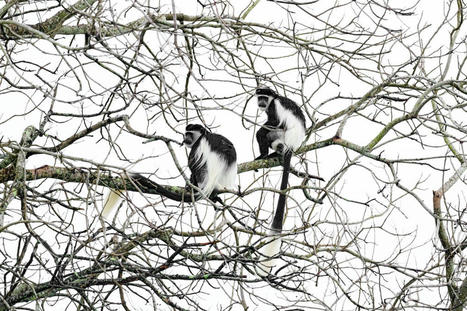By cutting trees in response to international demand for tobacco, farmers induced wildlife to start eating virus-laden bat guano. Zoonotic diseases, or illnesses transmitted from animals to humans, account for about three quarters of new infectious diseases around the world, including some that could lead to pandemics. The risk of a pathogen jumping from an animal to a human increases when people encroach on ecosystems and cause relationships to be disrupted between species—but how that risk actually becomes a reality can be unpredictable and difficult to untangle. A new paper published this week in Communications Biology shines rare light on one such case study: an example showing how international demand for tobacco led to habitat alterations in Uganda that seemingly drove chimpanzees and other species to begin consuming bat guano for mineral nutrients. In that process, the animals might have been exposed to more than two dozen viruses, including a novel cousin of the COVID-causing pathogen SARS-CoV-2...
Research and publish the best content.
Get Started for FREE
Sign up with Facebook Sign up with X
I don't have a Facebook or a X account
Already have an account: Login
Virus World provides a daily blog of the latest news in the Virology field and the COVID-19 pandemic. News on new antiviral drugs, vaccines, diagnostic tests, viral outbreaks, novel viruses and milestone discoveries are curated by expert virologists. Highlighted news include trending and most cited scientific articles in these fields with links to the original publications. Stay up-to-date with the most exciting discoveries in the virus world and the last therapies for COVID-19 without spending hours browsing news and scientific publications. Additional comments by experts on the topics are available in Linkedin (https://www.linkedin.com/in/juanlama/detail/recent-activity/)
Curated by
Juan Lama
 Your new post is loading... Your new post is loading...
|










